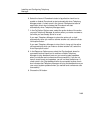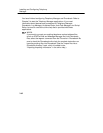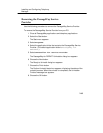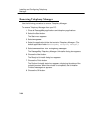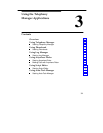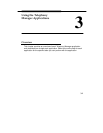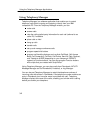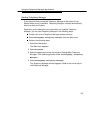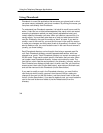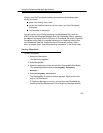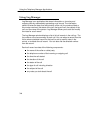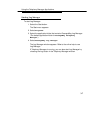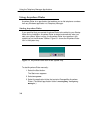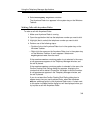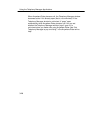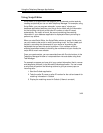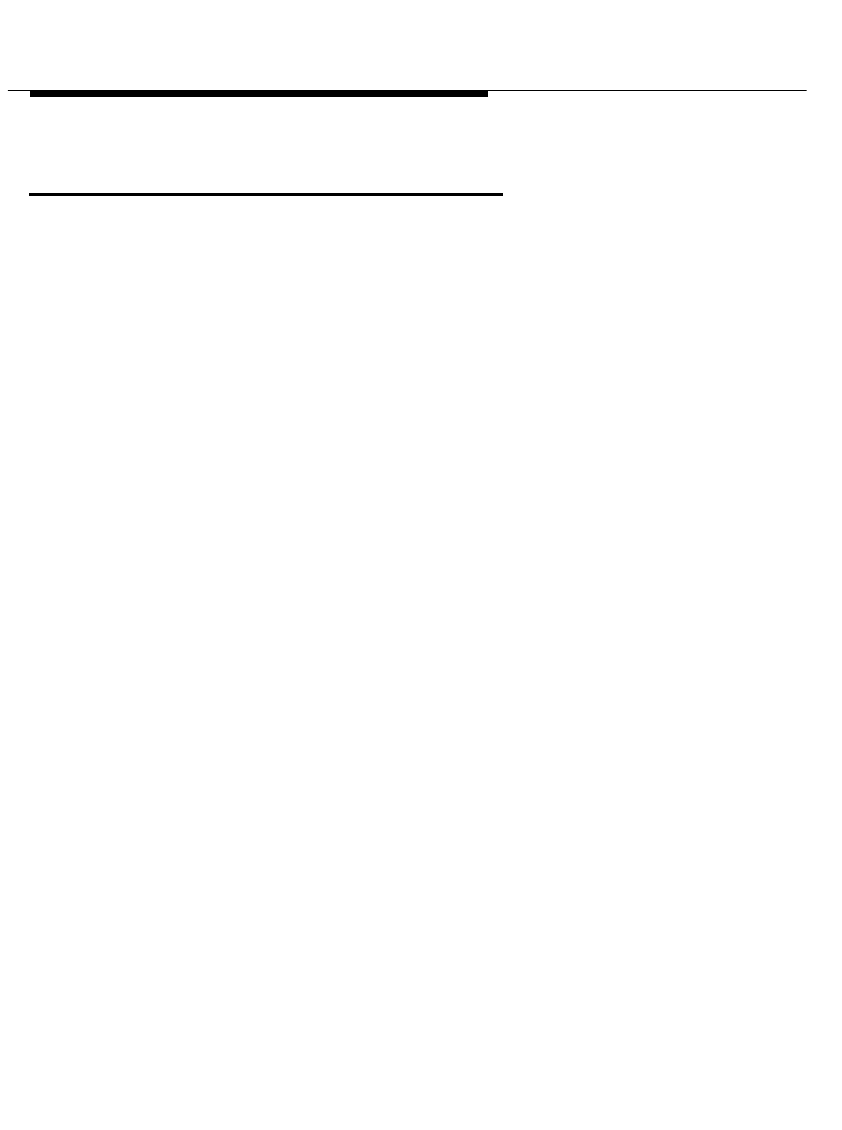
Using the Telephony Manager Applications
3-4
Using Phonebook
Phonebook is a card file application that serves as your phone book in which
you store names, addresses, and phone numbers. By clicking the mouse, you
can place calls directly from Phonebook.
To understand how Phonebook operates, it is helpful to recall how a card file
works. A card file is a unit that stores separate index cards, which are sorted
according to whatever method you want (usually alphabetical order) and
contain specific information you enter. When you obtain a new card file, it is
usually empty. You must then enter data on a card and add the card to the
card file. Eventually, the card file contains a “bank” of cards. If you want to
modify a card in the card file, you must find the card in the card file, remove
it, make your changes, and then place it back to its position in the bank. If you
want to delete a card, you must locate the card in the card file and remove it
(usually, you throw it away).
Each Phonebook directory can be thought of as being a separate card file
unit. Each Phonebook directory contains separate data entries, which are
referred to as “cards.” Each Phonebook directory can contain a maximum of
20,000 cards. These cards contain specific information that you enter. When
you create a new Phonebook directory, it does not contain any cards. The
card list box, which lists the cards present in the directory, is empty, and the
Card Contents form displays a blank card. As with a card file, you must then
access a new, blank card (via the Add button), enter data on the blank card,
and add the new card to the Phonebook (via the Save button).
If you want to modify a card in the Phonebook directory, you must find the
card that you wish to modify, remove it from the card list box, make your
changes to the card (via the Edit button), and then place it back in the card
list box (via the Save button). If you want to delete a card, you must locate the
card in the card list box and delete it (via the Delete button) from the
directory.



